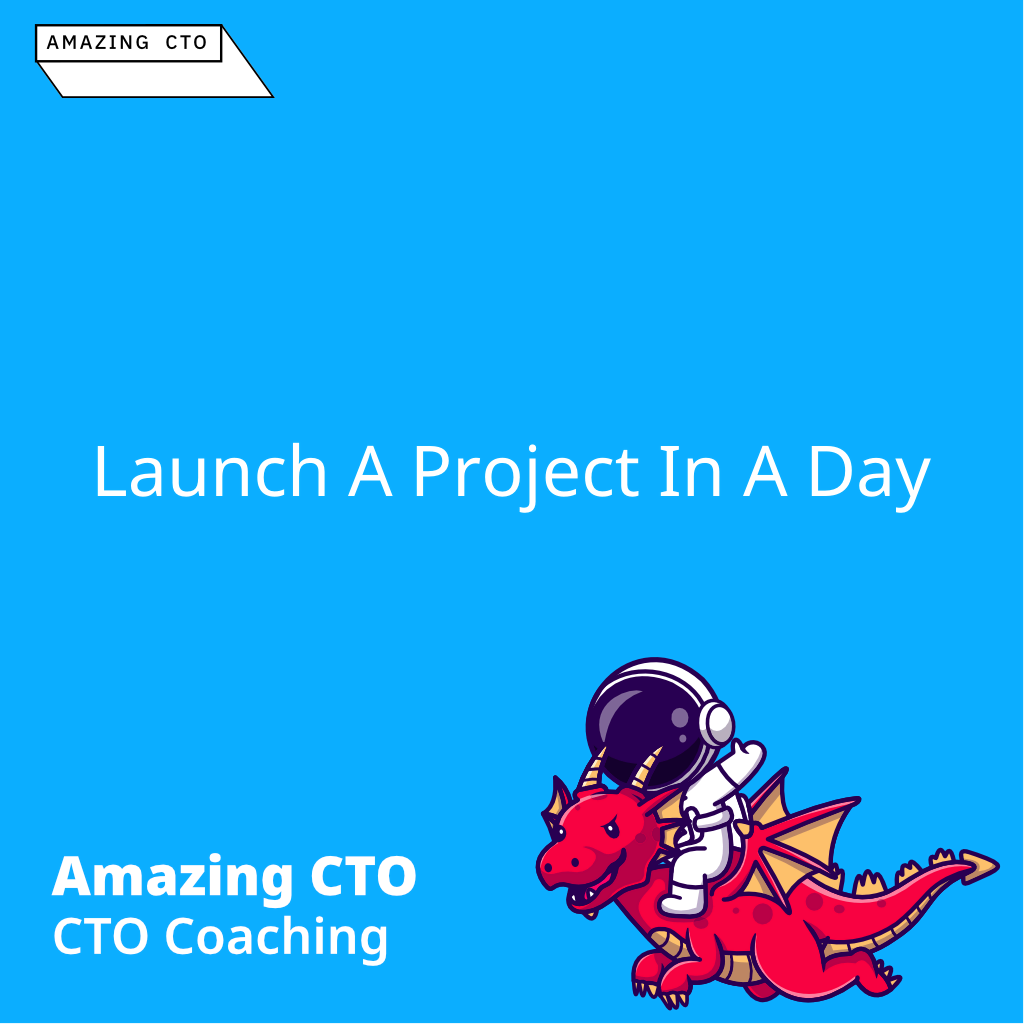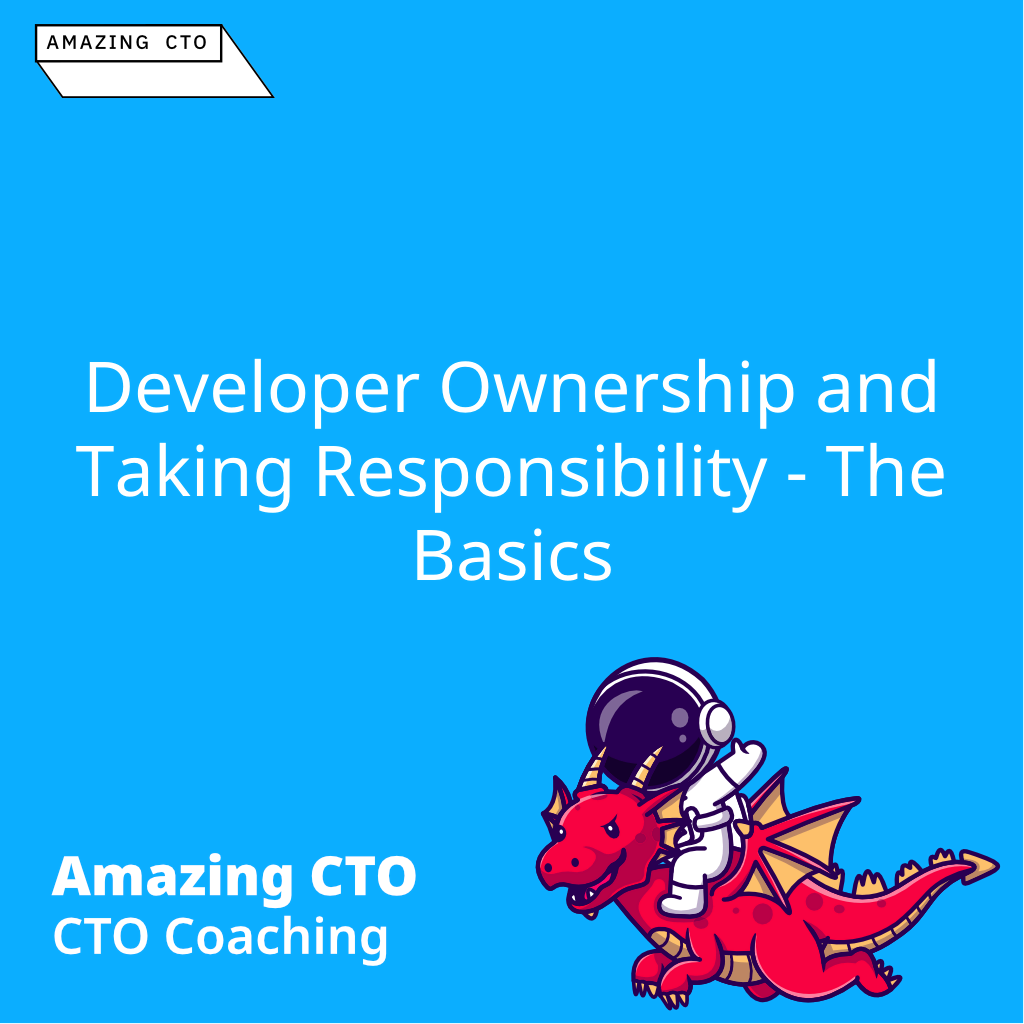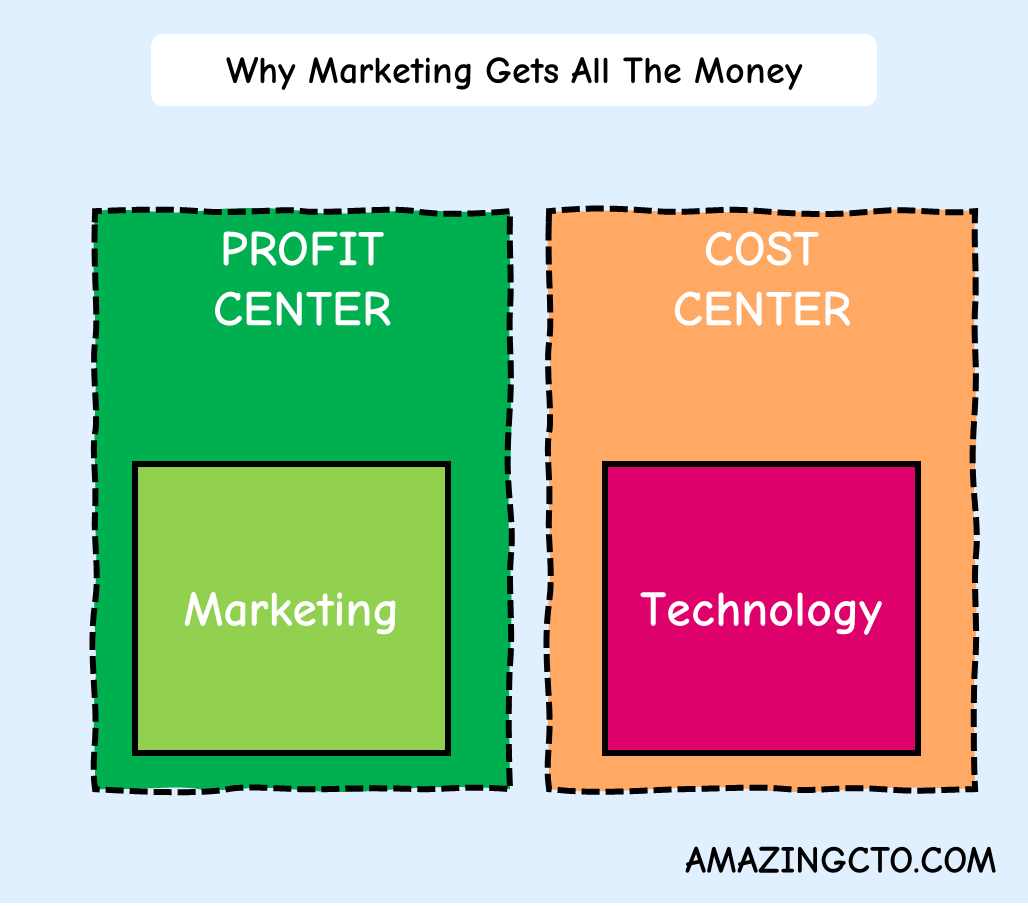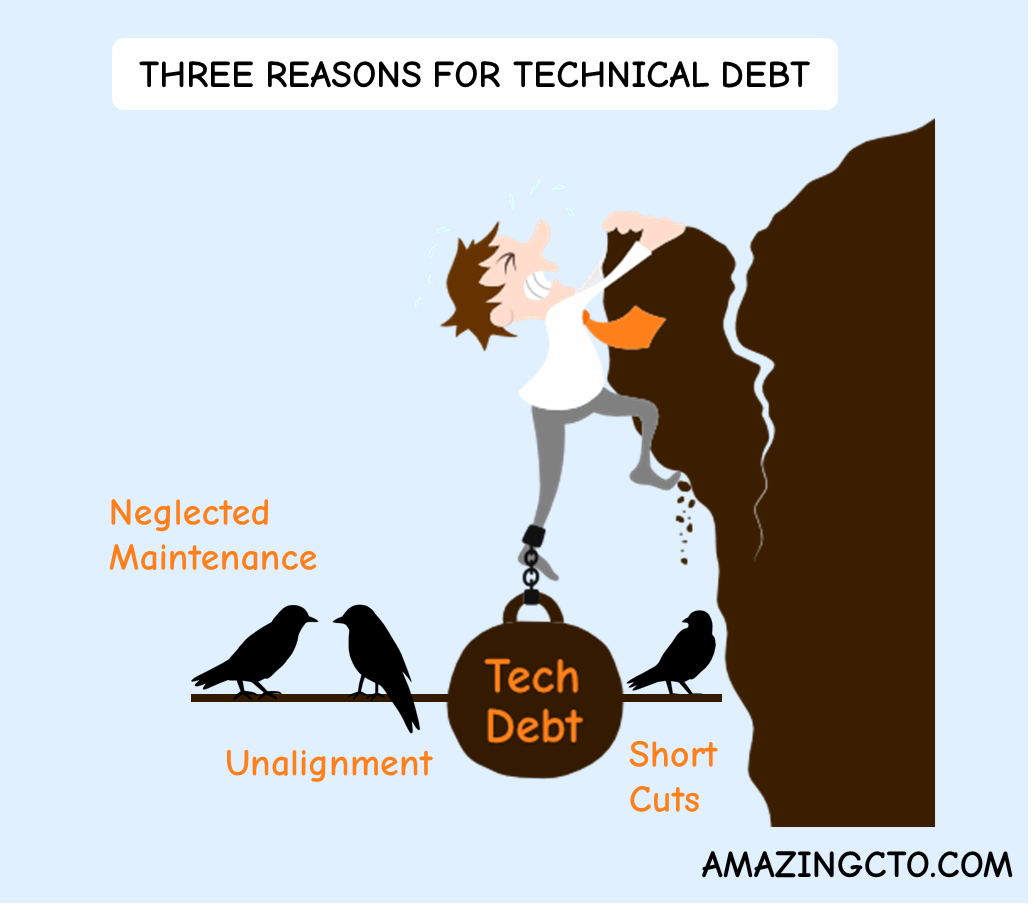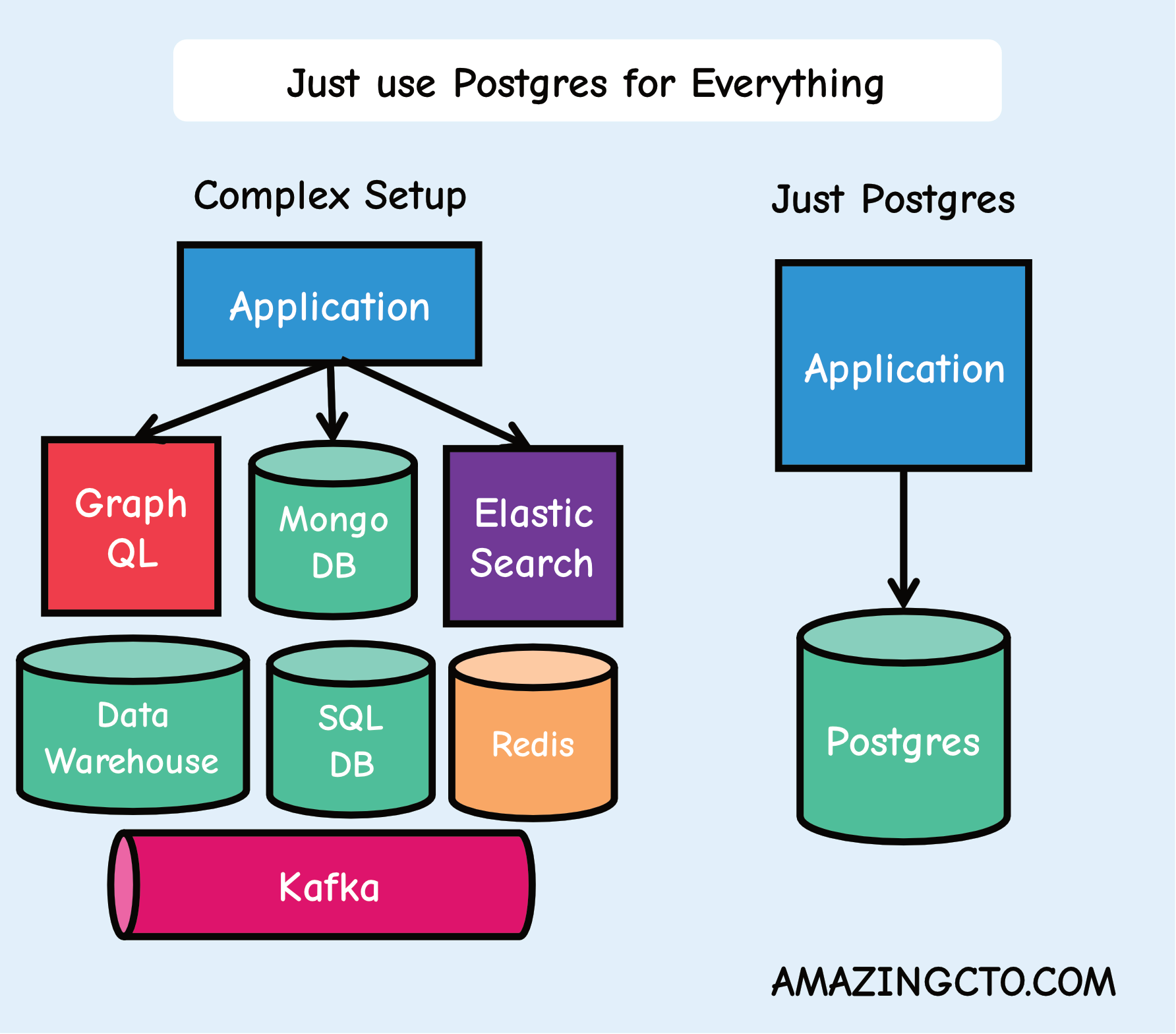
Stephan Schmidt
Do You Even Need A CTO As A Startup?
Don't make your first hire the CTO
The question is, do you need a CTO for your startup?
When talking to founders, they ask me how they will find a CTO. If you’re a founder of a startup, most likely you need developers to create your product. And it seems, someone needs to manage those developers—if you can’t or don’t want to do it. Developers, freelancers or an outsourced team may be hired. But in all cases, who bridges the gap between the business idea and the technical solution? Who makes sure they are aligned?
Here I often see the same mistake made. The technical co-fouder or the first developer is made the CTO. Isn’t that the obvious way? Isn’t that the only way?
From my experience in several startups, as CTO or engineering manager, no, it isn’t, and often it’s the worst way to move forward. You need someone to bridge the gap and manage developers. What is the way forward instead? There are many ways to move forward, hiring a CTO is not the only one:
- No CTO
- Hire a consultant
- Make first dev hire CTO
- Find technical co-founder
- Hire fractional CTO
- Hire Interim-CTO
- Hire CTO
- Hire CTO Coach
No CTO
There might not be a need for a CTO (yet). You think “tech-startup” and you think “CTO”. But you can get surprisingly far without one. In my startup model of Prototype, MVP, PMF and Traction, the Prototype phase, where you draw something in Figma or PowerPoint to show around, and the MVP phase, where you build something just to get to market and sell, clearly need no CTO. Especially as around PMF you might want to pivot technologies, which is a great point to bring in a CTO. As you show signs of PMF, it’s also much less risky to take on a CTO, and cheaper, because you can give less equity. Taken together, you might need a CTO later than you think.
Make first dev hire CTO
This is most often a mistake. The role of the CTO changes a lot over a short amount of time. From an individual contributor writing code, to a DevOps person, to a process person, to a hiring manager, to a manager of managers—often the first one in the company, with no guidance and help, to a strategy person in the first twenty months. The chance that your first hire can make the journey is slim—and the decision to make that hire CTO feels random.
Giving a title is easy, taking the title away is difficult. Giving a child a lollipop is easy, taking it away is impossible without drama. Same here. When consulting, I told several startups to strip the CTO of the title or fire the CTO. None did. None survived (mostly due to other reasons, the bad CTO was a contributing factor though).
Don’t do this, even if this is what most startups do.
If you need a title, to attract talent, give them founding engineer.
Hire a consultant
If you have the need for managing developers, creating a tech vision and strategy, plan an architecture and hire more developers, perhaps the right way is to hire a consultant. I doubt you need a manager, or a vision early on, but you might need to hire more developers. If you have no clue what makes a good developer and how to spot one, my advice is to hire a consultant who can hire developers for you. And no, this is not an HR person, but an experienced past engineering manager.
Find technical co-founder
Finding a technical co-founder is a double-edged sword. You get a CTO and developer - mostly - for free. The downsides are the same as making your first hire the CTO. The co-founder might not be capable of making the journey. Additionally, you give up equity and often waste time looking for that co-founder. You don’t start for months, because you’re on the lookup. My advice: Only do this if you really need a CTO (you don’t) and you don’t have any money to kick-start your startup.
Hire Interim-CTO
You can hire an Interim-CTO. or iCTO. This is a CTO for a limited time, to bridge the time until you hire one. The upside of an Interim-CTO is they are available immediately. They are experienced and can deal with all of your challenges. Later they can find you a permanent CTO. And if you don’t need them anymore, you can easily cancel the contract. The downside: this is very expensive, even substantially more expensive than hiring a CTO (but keep the opportunity costs in mind). If you have lots of money, need a CTO now to scale, this is the way to go.
Hire fractional CTO
Nearly as good as an Interim-CTO, is a fractional CTO, or fCTO for short. The fractional CTO is not a full time CTO but will work for some hours a day, e.g. 2, or some days of the week. You get an experienced CTO instantly who can help you with all engineering manager tasks and reduce risk of your startup - if you need one (disclaimer: I do this from time to time). The upside is, as the fCTO is only working a fractional of the time for your startup, this is much cheaper than the Interim-CTO way.
You might think you need a full time CTO, but you might be wrong. In early stage startups, there isn’t enough engineering management to keep a CTO occupied. Either the CTO is bored, does stupid things because they think they need to do something, or just write code. Either way, not a good investment. A CTO for one day of the week (and 24/7 call support ;-) is the right thing for many startups.
Hire CTO
If you have the money, and the need, just hire a CTO, who has done this several times before. If you want to save on salary, give equity (a much lower amount than to a co-founder) based on milestones reached (e.g. MVP, PMF, 1000 paying customers, etc.). And no, I’m no longer for hire, been there, bought the t-shirt. The downside: expensive and takes a long time to find and hire.
CTO Coach
Hire a CTO coach. “But I don’t have a CTO to coach!” Yes. Have a CTO coach to increase the management capabilities of all your developers. Make them good at hiring other developers. Most developers have no experience interviewing, or making hiring decisions, just experience on being interviewed. With a coach, they become great interviewers and more good developers are gonna be hired. Also you can promote one of them later on to CTO. As a bonus, most CTOs struggle when they need team leads because they have no one suitable to promote. With the coaching of developers early on, you make this a breeze.
You might not need a CTO at all. And if you think you need one, there are other options out there that might fit your situation better.

